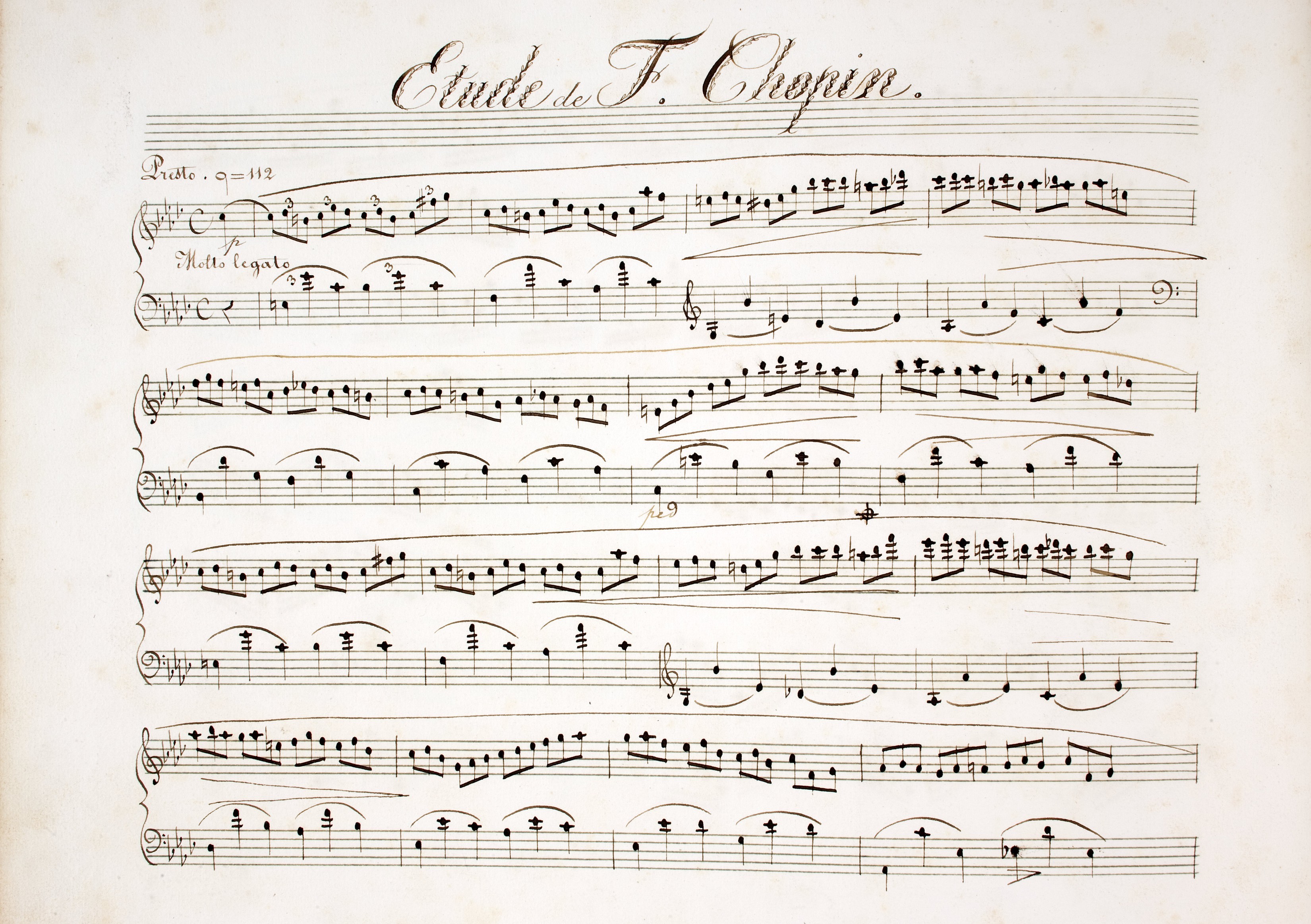



The use of  time signature is surprising only in CDP and EE, as in FE the
time signature is surprising only in CDP and EE, as in FE the  indication in the Etudes – contrary to the manuscripts – was not used at all, neither in Op. 25 nor in Op. 10 and the Etude in F minor, Dbop. 36 No. 1 (see also the Impromptu in A
indication in the Etudes – contrary to the manuscripts – was not used at all, neither in Op. 25 nor in Op. 10 and the Etude in F minor, Dbop. 36 No. 1 (see also the Impromptu in A major, Op. 29). In any case, the correctness and authenticity of the
major, Op. 29). In any case, the correctness and authenticity of the  time signature leaves no doubts – a two-beat bar is written in two autographs (AT and AW) and in GC, based on an autograph.
time signature leaves no doubts – a two-beat bar is written in two autographs (AT and AW) and in GC, based on an autograph.
The revision of EE3 could have been performed after having compared it with one of GE.
AT has a 2/4 time signature, which is a part of the original rhythmic notation of the Etude, discussed in the adjacent note.
Compare the passage in the sources »
category imprint: Differences between sources
issues: Changes of metre, Inaccuracies in FE, 4/4 or 2/2
notation: Rhythm



